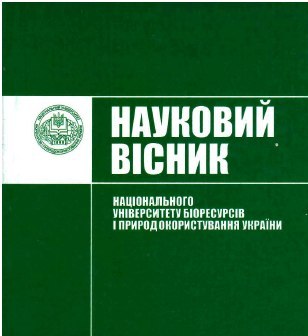Archetype of sophistry in Pavlo Tychyna’s creative literary activity
DOI:
https://doi.org/10.31548/philolog0(248).2016.0103%20-%20109Abstract
In this article the archetype of sophistry in the literature of Pavlo Tychyna is shown. In the poet’s poetry sophistry is represented as a literay credo of poet’s thought unity with the world of nature in which he establishes a dialogue with a human, a cult of the Sun, which is regarded in many aspects (sanctity of Kyiv, spiritual mission of the Ukrainian people, a higher role of beauty in the human’s life).
One of the crucial archetypes of the Ukrainian culture is the archetype of sophistry. The subject as sophistry has been founded during the Kyivan Rus time by old slavonic philosopher Cyril. It has its continuation in the ideal-artistic program of the cathedral of St. Sophia in Kyiv and in the activity of Hilario. After that the idea of sophistry had its continuation in the words of Ukrainian polemists – activists of Kyiv-Mohyla academy (P. Mohyla H. Konysky, H. Skovoroda, P. Yurkevych), in the Ukrainian poetry with its worlds symbolization (L. Tarasevych, H. Levtcky, I. Shchyrsky) and it continues till the Pavlo Tychyna’s activity. Many attention to the aspects of sophistry was dedicated by
H. Skovoroda, A. Blok, V. Solovyov, P. Florensky, S. Bulgakov and many others. In the last years there are some works of the Ukrainian scholars which are dedicated to this phenomenon. A problem of sophistry in the Pavlo Tychyna’s work remains very actual. Still it hasn’t been researched by any scholars. The main goal of this article is to show on the sophianic phenomenon in the Pavlo Tychyna’s poetry. The archetype of sophistry is linked with a solar symbolism. In the Ukrainian poetry nature represents a human soul. It could be observed in many Ukrainian poems and it is inherented by also
P. Tychyna’s poetry. He writes about a human soul which is in a dialogue with nature. One of the main aspects of the sophianic archetype is the idea of local government. Kyiv being a capital of the Kyivan Rus, was not only the main political, economic and cultural city of the state. It represented the idea of sophistry in a material dimension. Kyiv was a symbol of wisdom. That’s why the main temple of the city was the cathedral of St. Sophia which was the symbol of the God’s wisdom. The main figure of this cathedral was a mosaic of Our Lady – Oranta. Kyiv was a center of Greek-Slavonic orthodox civilization. It’s significant that Kyivan Rus capital had its prophecy by St. Andrew apostle. In Kyiv Pechersk Patericon this city is represented as a holy city in which the highest type of morality should be shown on. P. Tychyna wrote about these things in his poems. In the New Testament the God’s wisdom is shown as an internal human’s beauty. According to Tychyna’s poetry, beauty could have not only some positive qualities, but it could be also full of sufferance. Since the acceptation of Christian faith the Kyivan Rus civilization becomes a center of a sophianic idea. This idea is represented by many Ukrainian poets, had its continuation in P. Tychyna’s poems. Thus, P. Tychyna was a representor of ideas which were found in the Kyivan Rus time and had their continuation during the Ukrainian history.
References
Tychyna P. Arfamy, arfamy [Harp, harp] [Elektronnyj resurs]. – Rezhym dostupu: http://dovidka.biz.ua/arfami-arfami-virsh
Tychyna Pavlo. V serci u mojim: Virshi ta poemy iz nedrukovanoji o j pryzabutogo [In my heart: Verses and poems from unprinted and partially forgotten]– K.: Dnipro, 1970. – 302 s
Tychyna P. Zolotyj gomin [Golden noise] [Elektronnyj resurs]. – Rezhym dostupu: http://poetry.uazone.net/default/pages.phtml?place=tychina&page=tychin68
Tychyna P. Pam'jati trydcjaty [In memory of thirty ] [Elektronnyj resurs]. – rezhymdostupu:http://poetry.uazone.net/default/pages.phtml?place=tychina&page=tyc hin73
Tychyna P. Iz cyklu sotvorinnja svitu I. [From the cycle of word creation] [Elektronnyj resurs]. – Rezhym dostupu: http://www.yuryzavadsky.com/tychyna/pluh.html
Tychyna P. U sobor. [To a cathedral ] [Elektronnyj resurs]. – Rezhym dostupu: http://poetry.uazone.net/default/pages.phtml?place=tychina&page=tychin61
Tychyna P. Tam topoli u poli [There are poplars in the field ] [Elektronnyj resurs]. – Rezhym dostupu: http://www.yuryzavadsky.com/tychyna/sk.html
Tychyna P. Cvit v mojemu serci [The world is in my heart] [Elektronnyj resurs]. – Rezhym dostupu:
http://poetry.uazone.net/default/pages.phtml?place=tychina&page=tychin51
Tychyna P. Zolotyj gomin [Golden noise] [Elektronnyj resurs]. – Rezhym dostupu: http://poetry.uazone.net/default/pages.phtml?place=tychina&page=tychin68
Tam samo
Tychyna P. Dusha moja – posluhaj! / V serci u mojim [My soul, listen up! In my heart ]. – K.: Dnipro, 1970. – 196 c.
Tychyna P. «Chytaju dushi vashi nenache knygy, ja…» [Reading your soulsas if reading books ] [Elektronnyj resurs]. – Rezhym dostupu: http://poetry.uazone.net/default/pages.phtml?place=tychina&page=tychin39
Tychyna P. Zolotyj gomin[Golden noise], tam samo
Tychyna P. Ja utverzhdajus' [I assume ] [Elektronnyj resurs]. – Rezhym dostupu: http://poetry.uazone.net/default/pages.phtml?place=tychina&page=tychin76
Tychyna P. O. ja ne nevil'nyk…[I’m imprisoned] / V serci u mojim. K.: Dnipro, 1970. –302 c.
Downloads
Issue
Section
License
Relationship between right holders and users shall be governed by the terms of the license Creative Commons Attribution – non-commercial – Distribution On Same Conditions 4.0 international (CC BY-NC-SA 4.0):https://creativecommons.org/licenses/by-nc-sa/4.0/deed.uk
Authors who publish with this journal agree to the following terms:
- Authors retain copyright and grant the journal right of first publication with the work simultaneously licensed under a Creative Commons Attribution License that allows others to share the work with an acknowledgement of the work's authorship and initial publication in this journal.
- Authors are able to enter into separate, additional contractual arrangements for the non-exclusive distribution of the journal's published version of the work (e.g., post it to an institutional repository or publish it in a book), with an acknowledgement of its initial publication in this journal.
- Authors are permitted and encouraged to post their work online (e.g., in institutional repositories or on their website) prior to and during the submission process, as it can lead to productive exchanges, as well as earlier and greater citation of published work (See The Effect of Open Access).

